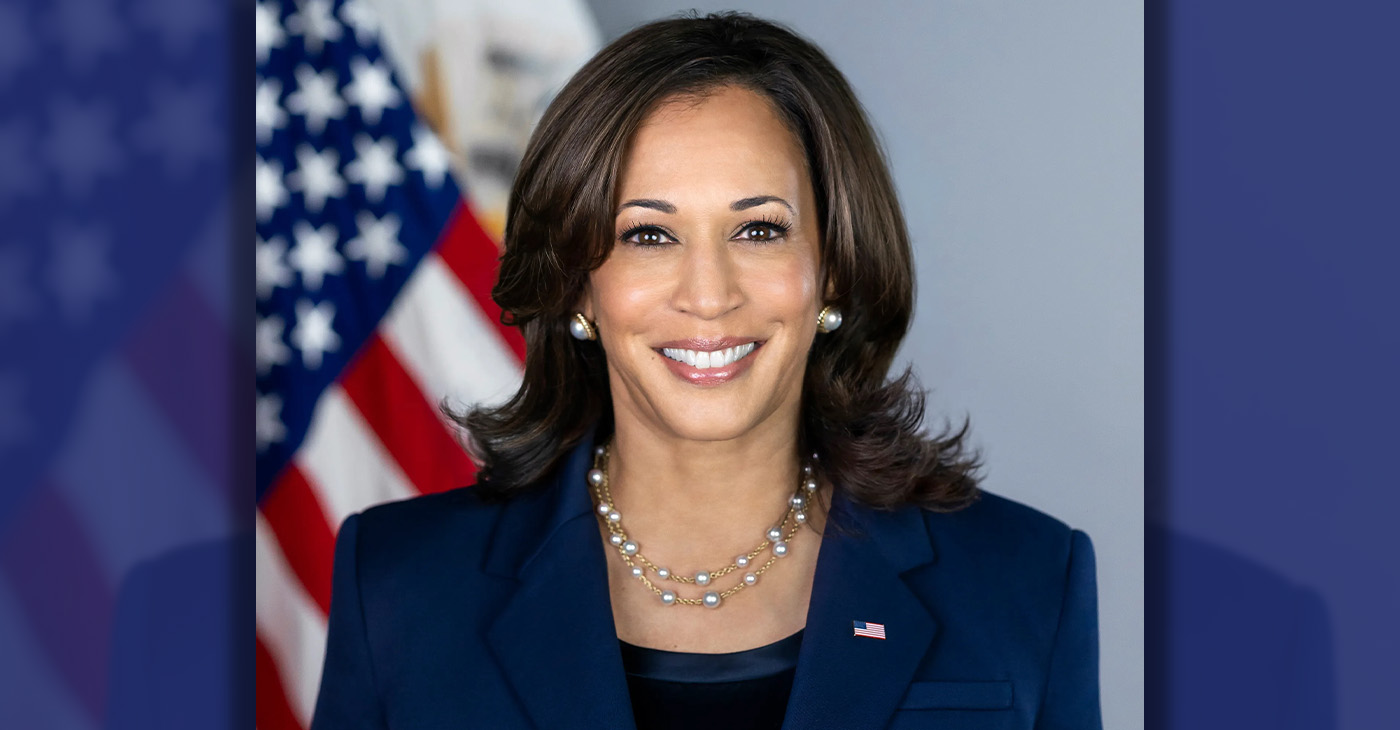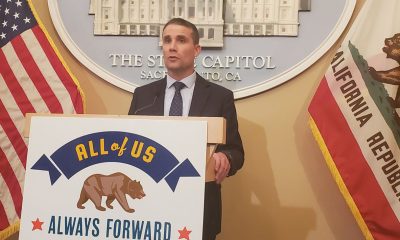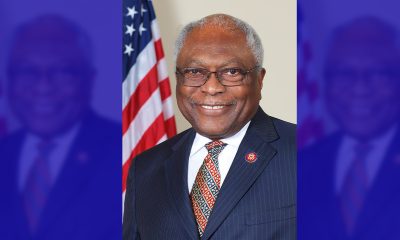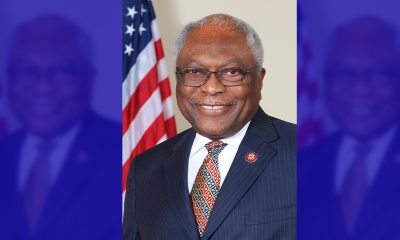Business
Even as U.S. Job Market Picks Up, Unemployed Face Frustration

In this Friday, Jan. 23, 2015 photo, Debbie Ramsawak, Director of Operations at the Hilton Bentley Miami Beach hotel, center, seated, talks with job applicant Zikey Cook, 24, left, during a job fair at the Hospitality Institute, in Miami. (AP Photo/Lynne Sladky)
Christopher S. Rugaber, ASSOCIATED PRESS
WASHINGTON (AP) — The job market remains a frustrating place for America’s 9 million unemployed — perhaps more so as hiring has accelerated along with job postings.
The pace of job growth over the past three months was the fastest in 17 years. The gains spanned nearly every industry, and some employers have finally had to dangle higher pay to attract or retain top talent.
And yet millions of job seekers still can’t find work. Some businesses remain slow to fill their openings, awaiting the ideal candidate. Many job seekers lack the skills employers require.
The plight of the unemployed also reflects an economic reality: Even in the best times, the number of job seekers is typically twice the number of job openings.
The January jobs report that the government issued Friday pointed to another factor, too: As hiring strengthens, more people typically start looking for jobs. As the number of job seekers grows, so does competition for work.
The number of openings has reached nearly 5 million, the most since 2001. Yet that’s barely more than half the number of people the government counts as unemployed.
“There’s always going to be a set of job vacancies, and there are always going to be a set of people transitioning from unemployment to work,” said Tara Sinclair, an economics professor at George Washington University. “The transition isn’t instantaneous.”
For many, the transition can be maddeningly slow. Complaints abound about online job sites that seem to function more as black holes than as gateways to employment. Applicants can’t get past online portals to explain gaps in their resumes. Multiple interviews and other steps — even for low-paying jobs — can prolong the process.
Carlie Kozlowich, 23, had three interviews last year with a marketing company for a job she was told would involve “travel” and “events.” Only after accepting the job did she learn it involved selling goods at a booth in a Costco. Having amassed roughly $50,000 in debt to earn a college degree, she felt she had to turn it down.
“Three interviews just to say, ‘Would you like to try a pierogi today?'” she said.
Steven Davis, an economist at the University of Chicago, calculates that it took employers an average of 25.6 working days to fill a job in November, the latest period for which data are available. That nearly matched July’s figure of 26, the longest in the 14 years that the government has gathered the data Davis uses.
An extended hiring period can in some ways be a positive sign: It suggests that companies are having a harder time finding workers because the economy has strengthened. The number of unemployed peaked at 15.4 million in October 2009, just after the recession ended.
Still, the fact that it takes companies so long to fill vacancies, even with 9 million people unemployed, suggests that more discouraging factors may be at play.
Some companies that are seeking high-skilled workers in fields like information technology and advanced manufacturing complain about a shortage of qualified candidates. Some recruiters and online job sites describe “skills mismatches.”
Paul D’Arcy, senior vice president at the job listings website Indeed.com, says lower-skilled jobs generally receive a flood of resumes, while higher-skilled positions attract far fewer.
Jobs in management, computers and math and architecture and engineering far outnumber job seekers in those fields, according to Indeed’s data.
That doesn’t sit well with Bill Gahan, 51, who has sought work for nearly a year after moving to Salt Lake City. Gahan worked in manufacturing and logistics for 29 years, including as a vice president for logistics at a manufacturer of hardware and software for visually impaired people.
Told that some experts think many of the unemployed lack the right skills, Gahan says, “I want to have a conversation with whoever is saying that.”
Increasingly, many economists agree with Gahan. Though skill shortages exist in some highly technical positions, if shortages of qualified workers were pervasive, employers would likely be offering higher pay. Despite a sharp gain in January, average pay still hasn’t risen much.
Many employers also remain highly selective, perhaps assuming there are still legions of unemployed to choose from. They may be right: There are 6.8 million part-time workers who would prefer full-time jobs — 50 percent more than in 2007, before the recession began.
The recession also left some companies reluctant to make permanent hires. They have turned instead to temporary and contract workers.
All that has left job seekers like Stephen Jones in a bind. A lawyer, Jones hasn’t found work since moving to Windermere, Florida, more than a year ago. Besides applying for positions as a lawyer, Jones has lowered his sights and sought legal assistant and paralegal jobs. Having sent out 200-300 resumes, he’s heard back once or twice.
“What do I do?” asked Jones, 32. “I’m overqualified for some jobs, and I’m underqualified for the jobs that I want to have.”
Many companies that want to hire don’t see the hurry.
Explorys, a health care data provider in Cleveland, plans to add 80 people to its 142-person staff this year, mostly in data analysis. The company uses a database to help hospitals manage and anticipate patients’ needs.
Cleveland is home to several major health care employers and research universities, so Explorys typically has “lots of good candidates” for jobs, says CEO Steve McHale, and tries to identify those who fit its culture and values.
“We probably say ‘no’ more than other companies,” he said.
Geography can pose a hurdle for some companies that want to hire.
Digi-Key, an online seller of electrical components, added 521 jobs last year as sales grew, raising its workforce to 3,300. Yet it’s located in Thief River Falls, Minnesota, a town of 8,500 an hour from the Canadian border.
It has offered relocation bonuses and arranged bus service to nearby cities to find applicants. But Rick Trontvet, vice president for human resources, worries that those measures won’t be enough as the company grows.
“We have so many jobs and so few people to fill them,” Trontvet says.
____
Contact Chris Rugaber on Twitter at http://Twitter.com/ChrisRugaber.
Copyright 2015 The Associated Press. All rights reserved. This material may not be published, broadcast, rewritten or redistributed.
###
Business
V.P. Kamala Harris: Americans With Criminal Records Will Soon Be Eligible for SBA Loans
Speaking in Las Vegas on Jan. 27, Vice President Kamala Harris announced a forthcoming federal rule that will extend access to Small Business Administration (SBA) loans to Americans who have been convicted of felonies but have served their time. Small business owners typically apply for the SBA loans to start or sustain their businesses.

By California Black Media
Speaking in Las Vegas on Jan. 27, Vice President Kamala Harris announced a forthcoming federal rule that will extend access to Small Business Administration (SBA) loans to Americans who have been convicted of felonies but have served their time.
Small business owners typically apply for the SBA loans to start or sustain their businesses.
Harris thanked U.S. Rep. Steven Horsford (D-NV-04), the chair of the Congressional Black Caucus, for the work he has done in Washington to support small businesses and to invest in people.
“He and I spent some time this afternoon with business leaders and small business leaders here in Nevada. The work you have been doing to invest in community and to invest in the ambition and natural capacity of communities has been exceptional,” Harris said, speaking to a crowd of a few hundred people at the Brotherhood of Electrical Workers Hall in East Las Vegas.
On her daylong trip, Harris was joined by Horford, SBA Administrator Isabella Guzman, Interim Under Secretary of Commerce for Minority Business Development Agency (MBDA) Eric Morrissette, and Sen. Catherine Cortez Masto (D-Nev).
“Formerly incarcerated individuals face significant barriers to economic opportunity once they leave prison and return to the community, with an unemployment rate among the population of more than 27%,” the White House press release continued. “Today’s announcement builds on the Vice President’s work to increase access to capital. Research finds that entrepreneurship can reduce recidivism for unemployed formerly incarcerated individuals by as much as 30%.”
Business
G.O.P. Lawmakers: Repeal AB 5 and Resist Nationalization of “Disastrous” Contractor Law
Republican lawmakers gathered outside of the Employee Development Department in Sacramento on Jan. 23 to call for the repeal of AB5, the five-year old California law that reclassified gig workers and other independent contractors as W-2 employees under the state’s labor code.

By California Black Media
Republican lawmakers gathered outside of the Employee Development Department in Sacramento on Jan. 23 to call for the repeal of AB5, the five-year old California law that reclassified gig workers and other independent contractors as W-2 employees under the state’s labor code.
Organizers said they also held the rally to push back against current efforts in Washington to pass a similar federal law.
“We are here to talk about this very important issue – a battle we have fought for many years – to stop this disastrous AB 5 policy,” said Assembly Republican Leader James Gallagher (R-Yuba City).
Now, that threat has gone national as we have seen this new rule being pushed out of the Biden administration,” Gallagher continued.
On Jan. 10, the U.S. Department of Labor issued a new rule providing guidance on “on how to analyze who is an employee or independent contractor under the Fair Labor Standards Act (FLSA).”
“This final rule rescinds the Independent Contractor Status Under the Fair Labor Standards Act rule (2021 IC Rule), that was published on January 7, 2021, and replaces it with an analysis for determining employee or independent contractor status that is more consistent with the FLSA as interpreted by longstanding judicial precedent,” a Department of Labor statement reads.
U.S. Congressmember Kevin Kiley (R-CA-3), who is a former California Assemblymember, spoke at the rally.
“We are here today to warn against the nationalization of one of the worst laws that has ever been passed in California, which has devastated the livelihoods of folks in over 600 professions,” said Kiley, adding that the law has led to a 10.5% decline in self-employment in California.
Kiley blamed U.S Acting Secretary of Labor, July Su, who was the former secretary of the California Labor and Workforce Development Agency, for leading the effort to redefine “contract workers” at the federal level.
Kiley said two separate lawsuits have been filed against Su’s Rule – its constitutionality and the way it was enacted, respectively. He said he is also working on legislation in Congress that puts restrictions on the creation and implementation of executive branch decisions like Su’s.
Assemblymember Kate Sanchez (R-Rancho Santa Margarita) announced that she plans to introduce legislation to repeal AB 5 during the current legislative session.
“So many working moms like myself, who are also raising kids, managing households, were devastated by the effects of AB 5 because they lost access to hundreds of flexible professions,” Sanchez continued. “I’ve been told by many of these women that they have lost their livelihoods as bookkeepers, artists, family caregivers, designers, and hairstylists because of this destructive law.”
Activism
Oakland Post: Week of April 10 – 16, 2024
The printed Weekly Edition of the Oakland Post: Week of April 10 – 16, 2024

To enlarge your view of this issue, use the slider, magnifying glass icon or full page icon in the lower right corner of the browser window. ![]()
-

 Activism4 weeks ago
Activism4 weeks agoOakland Post: Week of March 20 – 26, 2024
-

 #NNPA BlackPress3 weeks ago
#NNPA BlackPress3 weeks agoCOMMENTARY: D.C. Crime Bill Fails to Address Root Causes of Violence and Incarceration
-

 #NNPA BlackPress3 weeks ago
#NNPA BlackPress3 weeks agoMayor, City Council President React to May 31 Closing of Birmingham-Southern College
-

 #NNPA BlackPress3 weeks ago
#NNPA BlackPress3 weeks agoFrom Raids to Revelations: The Dark Turn in Sean ‘Diddy’ Combs’ Saga
-

 #NNPA BlackPress3 weeks ago
#NNPA BlackPress3 weeks agoCOMMENTARY: Lady Day and The Lights!
-

 #NNPA BlackPress3 weeks ago
#NNPA BlackPress3 weeks agoBaltimore Key Bridge Catastrophe: A City’s Heartbreak and a Nation’s Alarm
-

 #NNPA BlackPress3 weeks ago
#NNPA BlackPress3 weeks agoBaltimore’s Key Bridge Struck by Ship, Collapses into Water
-

 Activism3 weeks ago
Activism3 weeks agoOakland Post: Week of March 27 – April 2, 2024

















































